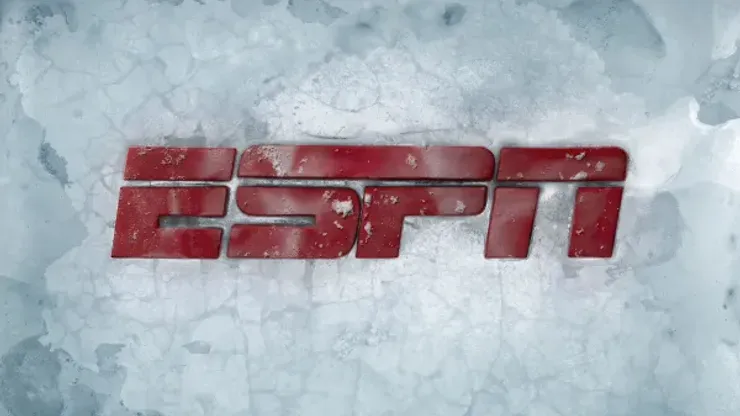ESPN generated controversy Thursday when it named its four lead commentators for US TV coverage of the 2010 World Cup. All four are British born, but not one US-born commentator was selected.
Of the four chosen by ESPN, three of them are English (Martin Tyler, Ian Darke and Adrian Healey), while one is Scottish (Derek Rae).
After the news was announced, I came out strongly in expressing my dismay at ESPN’s decision to demote JP Dellacamera from covering the World Cup on television to radio.
I feel so strongly that ESPN should have named a US commentator among its four that I decided to explain why in more detail in this post. But before I do that, I want to say that I think that all of you will agree with me that it’s important for ESPN to deliver a quality production this summer, which means selecting the most qualified commentators available to the network. I also want to say that I’m not married to JP Dellacamera being the US lead commentator. I recognize that he’s not the best, but he does have a long history of covering the U.S. men’s national team, he’s earned his wings and knows the team well.
Whether it’s JP Dellacamera or a different US soccer commentator, here are the reasons why I believe ESPN should have selected a US-born commentator as part of its lead commentator team on TV:
- Bigger appeal to mainstream. Many sports fans only watch soccer every four years, so having a team of British lead commentators is automatically going to create a “distance” between the viewer and the commentator. An American commentator would be more appropriate for a US viewing audience.
- Accents are easier to understand. The vast majority of soccer fans are used to listening to British accents and understanding what they’re saying. However, the mainstream in America have a difficulty with foreign accents. If you don’t believe me, watch BBC America and watch how often they feature subtitles when English-speaking people are on television. This includes British television shows and their nightly news show. If the viewing audience for the World Cup can’t understand every word a commentator says, it’s going to decrease their level of interest.
- American identity. When a US TV network televises the World Cup, you would expect some of the commentators to be American. Sure, the presenters will be American but you would hope that the American voices would carry over to the commentating of the game. For the World Cup to be a completely successful production, you need the tournament to have an American identity. You need something that Americans can relate to. Listening to four Brits leading the commentating will not do that. The co-commentators will help, but why not mix it up and have one US commentator be the lead and have a Brit be the color commentator?
- Greater knowledge of American game and players. US commentators such as Phil Schoen and JP Dellacamera have lived and breathed the US soccer game for decades. World-class commentators such as Martin Tyler and Ian Darke will study and learn more about the US, but they’re not going to know more than Schoen, Dellacamera or others more familiar with the sport in this country.
- The need to groom commentators in this country. With ESPN’s reliance on foreign commentators, what is the network (and other soccer networks, too) doing to groom the next generation of US soccer commentators? Are we always going to rely on European commentators to lead the way? What is ESPN’s strategy to ensure that US commentators are groomed to cover the game?
- The World Cup effect. When a World Cup ends, the number of new soccer fans born is massive – especially in the United States. But when the lead voices of this summer’s World Cup go back to their regular day-to-day work, it’s the Premier League who will profit from the massive interest in the World Cup, not Major League Soccer. After the World Cup ends, soccer fans will find Martin Tyler and Ian Darke commentating on the Premier League. Adrian Healey will continue to present the Premier League coverage on ESPN. And Derek Rae will continue switching between covering the Scottish Premier League in his home country and some matches in the States. Where is Major League Soccer in this equation? What is ESPN saying to the average soccer fan when it’s giving so much preference to the Premier League and British commentators?
I’ve listened to the feedback of many of my readers who have been surprised at my viewpoint regarding this controversial subject. Yes, I am British but I’m also an American citizen and I want the game to succeed in this country. By ESPN not picking a US-born lead commentator, ESPN is saying to me that it’s putting its cards on the Premier League becoming even more popular in the United States while Major League Soccer is a much lesser priority.
200+ Channels With Sports & News
- Starting price: $33/mo. for fubo Latino Package
- Watch Premier League, Women’s World Cup, Euro 2024 & Gold Cup
The New Home of MLS
- Price: $14.99/mo. for MLS Season Pass
- Watch every MLS game including playoffs & Leagues Cup
Many Sports & ESPN Originals
- Price: $10.99/mo. (or get ESPN+, Hulu & Disney+ for $14.99/mo.)
- Features Bundesliga, LaLiga, Championship, & FA Cup
2,000+ soccer games per year
- Price: $5.99/mo
- Features Champions League, Serie A, Europa League & Brasileirāo
175 Premier League Games & PL TV
- Starting price: $5.99/mo. for Peacock Premium
- Watch 175 exclusive EPL games per season






